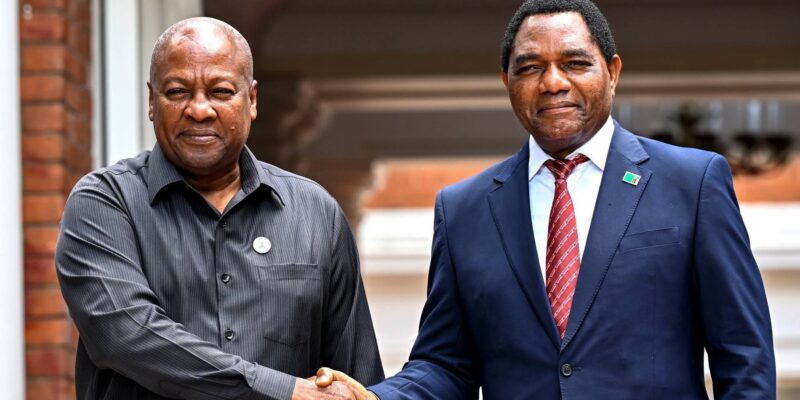Kwame Nkrumah: The Visionary Who Dreamed of a United Africa
(13).jpeg)
In the story of Africa’s liberation and quest for unity, few figures stand as tall as Kwame Nkrumah. Born in 1909 in Nkroful, a small village in the British Gold Coast (now Ghana), Nkrumah rose to become not only Ghana’s first Prime Minister and President but also a leading voice for Pan-Africanism. His dream extended beyond the borders of Ghana; he envisioned a united Africa, free from colonial domination and strong enough to shape its destiny. Today, decades after his passing, his influence still resonates across the continent, inspiring leaders, movements, and ordinary citizens.
From Humble Beginnings to Global Influence
Nkrumah’s early life was marked by humility, education, and ambition. Raised in a modest family, he pursued teaching before earning a scholarship to study in the United States. At Lincoln University and the University of Pennsylvania, he immersed himself in philosophy, theology, and politics. It was during this period that he encountered Pan-Africanist thought, influenced by leaders like Marcus Garvey and W.E.B. Du Bois. These ideas shaped his belief that Africa’s liberation required not just independence from colonial powers but unity among its nations.
In the 1940s, he moved to London, where he became a key figure in Pan-Africanist circles. He played a prominent role in organizing the Fifth Pan-African Congress in Manchester in 1945, a pivotal event that brought together future African leaders to strategize for independence. According to the BBC, this congress solidified the agenda for decolonization and African solidarity.
(15).jpeg)
Image source: Getty images
Leading Ghana to Independence
Returning to the Gold Coast in 1947, Nkrumah joined the United Gold Coast Convention (UGCC) but quickly broke away to form the Convention People’s Party (CPP), which adopted a more radical stance against colonial rule. His call for “self-government now” resonated deeply with the masses. Through strikes, protests, and relentless advocacy, Nkrumah became a central figure in the independence movement.
Despite being imprisoned by the British in 1950, his influence grew. When elections were held in 1951, the CPP won overwhelmingly, leading to his release. On March 6, 1957, Ghana became the first sub-Saharan African country to gain independence, and Nkrumah declared, “The independence of Ghana is meaningless unless it is linked up with the total liberation of Africa.” This statement set the tone for his Pan-African vision.
Champion of Pan-Africanism
Nkrumah believed that Africa’s strength lay in unity. He argued that political independence was only the first step; economic and cultural integration were equally crucial. His book, Africa Must Unite, outlined his vision for a continental government, a common market, and shared defense mechanisms to protect against neo-colonialism.
In 1963, he played a pivotal role in founding the Organization of African Unity (OAU), now the African Union (AU). According to African Union archives, Nkrumah’s contributions laid the groundwork for policies promoting solidarity, economic cooperation, and collective security. Though not all African leaders agreed with his push for immediate political federation, his ideas planted seeds that continue to influence continental initiatives today.
Economic Dreams and Domestic Challenges
Domestically, Nkrumah embarked on ambitious development projects aimed at modernizing Ghana. He invested in infrastructure, education, and industrialization. Projects like the Akosombo Dam transformed Ghana’s energy capacity, while his emphasis on free education boosted literacy rates. These efforts earned him international praise as a progressive leader.
However, his economic policies faced criticism. Overreliance on cocoa exports, rising debts from industrialization programs, and allegations of corruption weakened his administration. Some accused him of authoritarianism as he consolidated power, curbed press freedom, and declared Ghana a one-party state in 1964.
Despite these challenges, many historians, including those cited by Britannica, argue that Nkrumah’s policies were rooted in a genuine desire to secure economic independence and social progress.
The Fall of a Leader
(14).jpeg)
Image credit: Alamy
In 1966, while on a state visit to China, Nkrumah was overthrown in a military coup backed by foreign interests. Declassified documents have since suggested possible involvement of Western powers concerned about his socialist leanings and ties with the Eastern bloc during the Cold War. The coup marked the end of his presidency, and he went into exile in Guinea, where President Sékou Touré appointed him honorary co-president.
Even in exile, Nkrumah continued advocating for African unity, writing extensively and urging leaders to resist neocolonial influence. His death in 1972 in Romania was mourned across Africa, and Ghana eventually recognized his contributions by returning his body to be buried as a national hero.
Legacy That Lives On
Kwame Nkrumah’s legacy transcends borders. In Ghana, he is remembered as the father of independence, with monuments, universities, and streets bearing his name. Across Africa, his Pan-African ideals continue to inspire leaders and activists pushing for deeper integration under the African Union.
His influence is also felt in the diaspora, where movements for racial justice and African pride echo his calls for unity. According to UNESCO, Nkrumah’s thought remains a cornerstone of African identity and political philosophy.
Critics may point to his authoritarian tendencies, but his contributions to Africa’s liberation and his dream of a united continent remain undeniable. His vision is reflected in initiatives like the African Continental Free Trade Area (AfCFTA), which seeks to create a single market for goods and services across Africa.
A Dream Yet to Be Fulfilled
Kwame Nkrumah once said, “We face neither East nor West; we face forward.” This statement encapsulates his belief that Africa’s destiny lies in its own hands. While the continent has made strides in economic growth, political cooperation, and cultural revival, the full realization of Nkrumah’s dream remains a work in progress.
Today, as Africa confronts challenges like climate change, economic inequality, and global competition, Nkrumah’s call for unity is more relevant than ever. His life reminds us that visionary leadership, rooted in the aspirations of the people, can transform nations and shape history.
His dream of a self-reliant, united Africa continues to challenge policymakers and inspire youth movements that seek to redefine the continent’s future.
Honoring Nkrumah means more than remembering his achievements; it means continuing to work towards the Africa he envisioned, an Africa united, independent, and strong.
Recommended Articles
Afropop's 'Mali Gold' Playlist Highlights Africa-America Institute's 'Gold Road' Conference

The Africa-America Institute launches its State of Education 2026 Conference, "Following The Gold Road," exploring 1,400...
Ghana, Zambia Forge Powerful Alliance: Mahama's Historic Visit Seals Deals and Ignites Fugu Fashion Debate

Zambia and Ghana have elevated their bilateral ties to a Comprehensive Economic Partnership following President John Dra...
Burkina Faso Junta Thwarts Assassination Plot Against Leader Ibrahim Traoré

Burkina Faso has announced it thwarted a sophisticated plot to assassinate its military leader, Captain Ibrahim Traoré, ...
You may also like...
If Gender Is a Social Construct, Who Built It And Why Are We Still Living Inside It?

If gender is a social construct, who built it—and why does it still shape our lives? This deep dive explores power, colo...
Be Honest: Are You Actually Funny or Just Loud? Find Your Humour Type

Are you actually funny or just loud? Discover your humour type—from sarcastic to accidental comedian—and learn how your ...
Ndidi's Besiktas Revelation: Why He Chose Turkey Over Man Utd Dreams

Super Eagles midfielder Wilfred Ndidi explained his decision to join Besiktas, citing the club's appealing project, stro...
Tom Hardy Returns! Venom Roars Back to the Big Screen in New Movie!

Two years after its last cinematic outing, Venom is set to return in an animated feature film from Sony Pictures Animati...
Marvel Shakes Up Spider-Verse with Nicolas Cage's Groundbreaking New Series!

Nicolas Cage is set to star as Ben Reilly in the upcoming live-action 'Spider-Noir' series on Prime Video, moving beyond...
Bad Bunny's 'DtMF' Dominates Hot 100 with Chart-Topping Power!

A recent 'Ask Billboard' mailbag delves into Hot 100 chart specifics, featuring Bad Bunny's "DtMF" and Ella Langley's "C...
Shakira Stuns Mexico City with Massive Free Concert Announcement!

Shakira is set to conclude her historic Mexican tour trek with a free concert at Mexico City's iconic Zócalo on March 1,...
Glen Powell Reveals His Unexpected Favorite Christopher Nolan Film

A24's dark comedy "How to Make a Killing" is hitting theaters, starring Glen Powell, Topher Grace, and Jessica Henwick. ...
